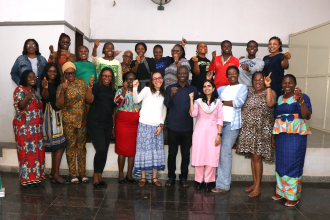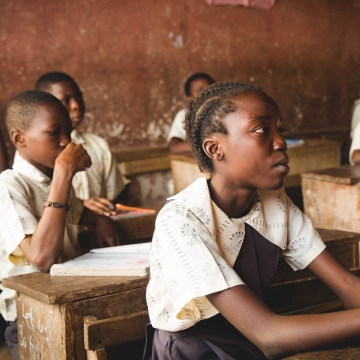Gendered demand for environmental health technologies: Evidence of complementarities from stove auctions in India
We study if prior exposure to one environmental health technology – improved sanitation – complements or substitutes for additional household investments in another such technology — an electric induction cookstove. We conducted a cookstove demand revealing auction ten years after a random half of our sample had been exposed to an intensive sanitation promotion campaign in rural India.

WinEED is building the capacity of women researchers at EfD Nigeria
EfD’s global network Women in Environmental Economics for Development (WinEED) has sustained its effort to encourage women to take leadership positions in research and development. Women researchers…
Household air pollution exposure and risk of tuberculosis: a case–control study of women in Lilongwe, Malawi
IntroductionGlobally, 3–4 billion people rely on solid fuels for cooking, and 1 billion use kerosene to light their homes.
Wheeling into school and out of crime: Evidence from linking driving licenses to minimum academic requirements
“No Pass No Drive” (NPND) laws revoke or deny driver’s licenses to minors who drop out of school, are frequent truants, exhibit behavioral issues, or perform poorly academically. By analyzing Federal Bureau of Investigation (FBI) arrest data and leveraging state, time, and cohort variations, the researchers find that NPND laws are linked to a significant reduction in total crime, DUI, and property crimes among males aged 16 to 18, as well as a decline in DUIs among females in the same age group.

Study analyzes Senegal's gender mainstreaming efforts in energy access
A new study has shed light on the challenges and successes of Senegal's National Action Plan to integrate gender equality into its energy policies by examining the political and economic factors…
Gender and generosity: How contribution information triggers solidarity behavior during a crisis
The COVID-19 pandemic has shown how important solidarity and prosocial behavior are in society. However, it is not well understood how solidarity behavior can be encouraged in such extreme cases. This study investigates the effect of activating crisis concerns and contribution information on solidarity perception and behavior using an experimental survey of 1,259 respondents in 2022 from Vietnam.
Gender-Inclusive Skilling for an Equitable Workforce
Key Points
This policy brief emphasizes the urgent need to address the gender gap in skilling through targeted interventions. By improving access, quality, and awareness of skilling programs, we can empower women and create a more equitable workforce.
8th Annual CECFEE Research and Policy Workshop - 7-9 November 2024
8th Annual CECFEE Research and Policy Workshop will be held at Khajuraho, Madhya Pradesh, India in partnership with SRIJAN. Please mark your calendars for November 7-9, 2024 (Thursday to Saturday) and…

SETI 2024 Annual Workshop sparked ideas and global collaboration
The 2024 SETI Annual Workshop, held on June 18-19, brought together a vibrant network of researchers, policymakers, and students for an engaging exchange of ideas and groundbreaking research. The…
Pagination
- Previous page
- Page 7
- Next page

